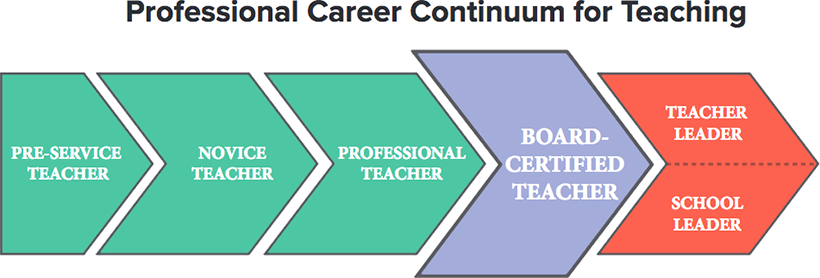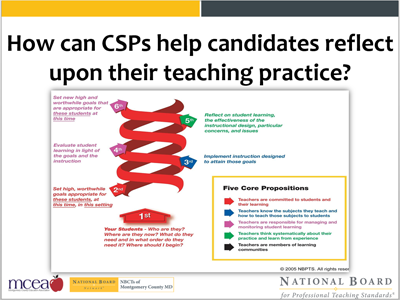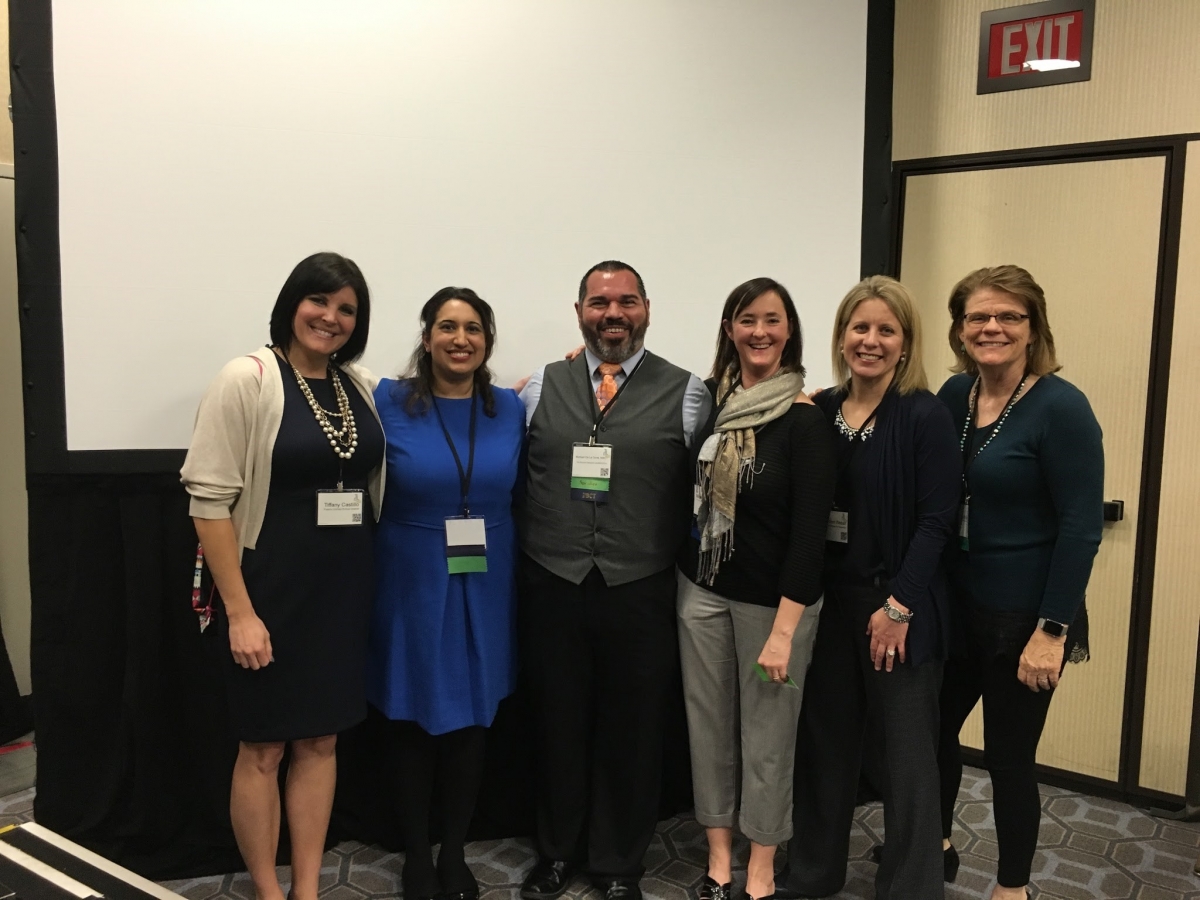What value does candidate support provide to our students, candidates, candidate support providers, and National Board? How will candidate support improve the teaching profession? At our session at the March Teaching and Learning conference, titled Getting Board-certified – New resources for Candidate Support Providers, our panelists (listed at the end) discussed the structure and values of our candidate support systems.
During our presentation, we discussed how our candidate support programs focus on preparing and building the capacity of National Board Certified Teachers (NBCTs) to be school leaders and teacher leaders. We want teachers to learn skills that they can use in the classroom with students, and improve at working with other teachers in their district. Candidate Support Provider (CSP) training is one way to strengthen a continuum within teaching to provide accomplished teachers a leadership role within our profession.

In Montgomery County (MD), we focus on training CSPs to attain these three important skills: understanding the Architecture of Accomplished Teaching and Five Core Propositions, communicating effectively, and facilitating a candidate’s reflective thinking about teaching and certification.
Understanding the Architecture of Accomplished Teaching is not something that happens quickly. I personally didn’t quite understand it until I was a participant in CSP training, and now I use this tool daily to help me reflect on my instruction. Knowing the National Board’s Core Propositions and the standards of accomplished teaching helps us think about our work with teachers as well as students. This skill is important for any teacher.

The National Board for Professional Teaching Standards (NBPTS) plans to release planning documents and resources next month to help candidate support providers create their own system. At the panel, we stressed that candidate support providers must individualize their support program. Be thoughtful about what decisions you need to make in creating a candidate support program. Build systems that are predictable to teachers and sustainable over time.
If you are thinking of building your own candidate support system, what factors should you consider? First, identify the values your candidate support will provide to students, candidates, and support providers. What are your core values as a system? Core values are important to establishing the purpose and goals of any program.
Consider the audience of your program. Who are your teachers and what needs do they have? (See “A Core Proposition for National Board Candidate Support Providers” for details.) How will you create a system that equitably supports ALL teachers pursuing certification as part of the educator growth continuum? Identify the skills you want teachers to develop and how these skills will impact teachers in the classroom.
Determine resources and partners you currently have in your district to create a tool kit. How will your candidate support system work for your school system? How do you plan to fund your program? How can you integrate support within the needs of your district, region, and state? Engage teachers in creating your candidate support system. Reach out to established networks to create connections and share ideas, resources, and tools. Identify conditions in place for a successful candidate support program.
Consider building systems that are sustainable. What kind of training do you and your fellow support providers have or need to have to provide ethical candidate support? How will you measure the success of your candidate support program? What are the metrics you will use at the end of one year, two years, and five years?
The National Board process has changed and the way we deliver candidate support must change to meet the needs of our teachers. How will we adapt to be flexible to our teachers’ needs? For me, knowing and understanding the teachers I work with is important to helping them own their process.
Lastly, why should we engage NBCTs through training them as candidate support providers? NBCTs have strong skills and a desire to affect student learning beyond their classroom. They can articulate how reflective practices have influenced their instruction. By engaging them as school and team leaders, we are growing the teaching profession on the local, state, and national level. We share a common purpose: we want to advance student learning and achievement.

My co-presenters:
- Linda Bauld, National Board Resource Center at Stanford University
- Michael de la Torre, The Support Network, United Teachers Los Angeles
- Tiffany Castillo, Fresno Unified School District
- Gretchen Weber, American Institutes for Research
- Michaela Miller, National Board for Professional Teaching Standards
Our panelists recommended the following resources:
- Our presentation from the session
- Looking at Student Work
- NEA Resources on National Board Certification
- Harmony Education Center’s Critical Friends Group Information
- Looking Together at Student Work by Blythe, Allen, and Powell
- Arizona K12 Center’s Coaching Conversations video
- Mentoring Teachers Toward Excellence by Shulman and Sato
- Information about resources, information, and network in your state
- NBPTS Value for Teachers
- Canvas course, Using Canvas for Your Candidate Support
